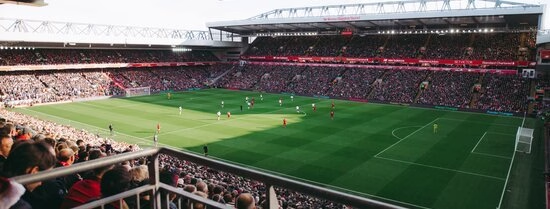ECASE is proud to announce its 6th Workshop on 'Using Sports in Economics and Management Research'. The programme includes five interesting presentations by a mix of leading and up-and-coming international speakers. Please join us on 17 February at the Excelsior Stadium.
- Date
- Friday 17 Feb 2023, 11:30 - 22:00
- Type
- Workshop
- Location
Excelsior Stadium Woudestein
- Ticket information
Participation fee of 50 euros
Programme
| 11:30 | Welcome guests |
| 12:00-13:00 | Lunch |
| Paper Presentations Note: 15 minute break between each presentation | |
| 13:00-13:45 | Gabor Bekes (Central European University, KRTK and CEPR) |
| 14:00-14:45 | Peter Dolton (University of Sussex) |
| 15:00-15:45 | Bernd Frick (University of Paderborn) |
| 16:00-16:45 | Rachel Scarfe (University of Edinburgh) |
| 17:00-17:45 | Francesco Principe (University of Bergamo and ECASE) |
| 18:00-22:00 | Dinner at the Excelsior Stadium |
Abstracts of papers
Peter Dolton (University of Sussex)
We all experience shocks to our personal satisfaction. This paper examines the causal effects of the exogenous outcomes of football matches on personal utility. We calibrate these results relative to other activities and estimate the dynamic effects these exogenous events have over time.
We find that the loss of our team makes us twice as unhappy as the gain of a win. So, if football, on average, makes us unhappier – so why would we go through the pain of following a football team?
This behavioural choice paradox occupies much of the paper. We examine the effect of being at the stadium, the dynamic effects of football matches over time in different hours before and after the game, and the extent to which our happiness is influenced by what we would rationally expect the result to be beforehand – as based on the betting odds.
Finally, we explore whether 'loss aversion' or other behavioural theories can explain our empirical findings.
Co-author: George MacKerron
Bernd Frick (University of Paderborn)
A salary cap (typically negotiated between team owners and the respective players’ union) is a rule that places a limit on the amount of money that clubs can pay to their players. It is designed to promote parity between teams and to control costs.
In this paper I use longitudinal data from all teams in the four Major Leagues in the US over a period of 20 years (2000-2021) to assess the impact of different salary cap regulations on the clubs’ profitability.
While the National Hockey League and the National Football League have both implemented a 'hard cap' that is difficult to circumvent, the National Basketball association has implemented a 'soft cap', the regulations of which can be easily avoided.
Finally, Major League Baseball has implemented a luxury tax only, an arrangement in which teams whose payroll exceeds a certain figure are taxed on the excess amount they pay. My estimations show that in leagues with a hard cap the revenue-profitability-relationship is much closer than in leagues with a soft cap or no cap at all, suggesting that salary caps primarily serve the purpose to control costs.
In the NHL and in the NFL each additional revenue dollar increases owner profits by about 66 cent, while in the NFL the respective amount is 47 cent and in MLB 25 cent only.
Rachel Scarfe (University of Edinburgh)
There is an inverted u-shaped relationship between age and wages in most labour markets and occupations, but the effects of age on productivity are often unclear. We use panel data on productivity and salaries in a market of high earners, professional footballers in North America, to estimate age-productivity and age-wage profiles.
We find stark differences between these profiles; wages continue to increase for several years after productivity has peaked. This discrepancy poses the question: why are older workers seemingly overpaid relative to their contemporaneous productivity?
The richness of our dataset allows us to consider a range of possible mechanisms that could be responsible, including institutional factors, unobserved elements of productivity, and a talent discovery theory, by which risk averse teams pay younger players less because their productivity is less well-known.
Francesco Principe (University of Bergamo and ECASE)
We investigate the role of local amenities in shaping compensating wage differentials in labour markets populated by superstars.
Using 10 years of longitudinal data on workers productivity as well as information on firms and location amenities, we evaluate whether workers are willing to pay to join a better firm and if firms with undesirable attributes must provide higher wages to attract workers.
By accounting for unobserved workers heterogeneity, we show that superstars receive positive wage differentials for lower location amenities as well as riskier employments.
Co-author: Mattia Filomena
Location
Excelsior Stadium Woudestein
Address: Honingerdijk 110, 3062 NX Rotterdam
Registration and participation fee
Registration for this workhop is closed
- More information
The ECASE team
Jan van Ours, Thomas Peeters, Stefan Szymanski, Francesco Principe and Sam Hoey- Related links
- Erasmus Centre for Applied Sports Economics (ECASE)

